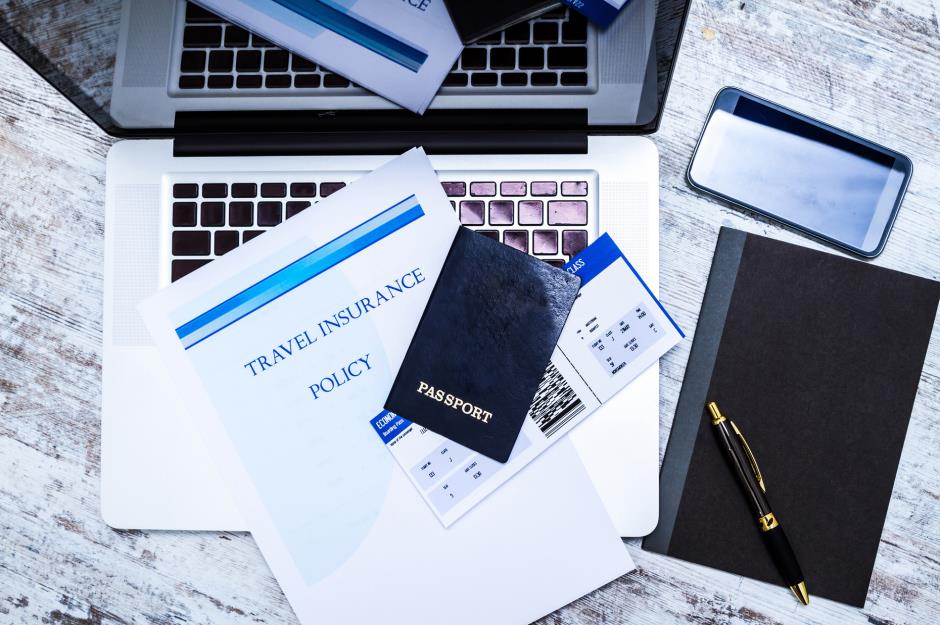A travel doctor's orders: how to stay healthy on holiday

Izf/Shutterstock
Top travel health tips
We've all had a spot of Delhi belly before, right? Sometimes you can't help getting sick on holiday, but there are certainly things you can do to prevent any major disasters. We asked Dr Kenny Livingstone, chief medical officer and founder of an on-demand GP service ZoomDoc, all our burning questions on travel health. Here are his top tips for staying healthy on holiday.

Conejota/Shutterstock
What should I do before I head off travelling?
One of the most important things to do before heading on a holiday is to check you're up to date with immunisations. Depending on your travel destination, you might require extra vaccinations in order to protect yourself from serious diseases found in other parts of the world. Check the NHS to see what you will need – some are free, others you'll need to pay for. Leave plenty of time before you go on holiday for this, as some immunisations need to be given far in advance. It’s highly recommended that you allow at least eight weeks prior to your trip for getting all the vaccinations to ensure you’re protected.
igorstevanovic/Shutterstock
Get a quick MOT
It's also a good idea visit your GP before heading on holiday, whether you need immunisations or not, especially if you’re planning to be away for longer than two weeks. Get a check-up before you leave the country to avoid any expensive travel insurance claims while you're out there.
How do I stay healthy on a long-haul flight?
It’s widely known that due to low cabin humidity (which is at around 10%) most people feel thirstier when they're on a plane, especially while on long-haul flights. Dr Livingstone advises staying away from any alcoholic drinks and coffee, as these mixed with dry air can cause you to feel even more dehydrated once you land. Always drink lots of water and be sure to move around the plane as much as possible, and do simple leg stretches while you’re seated. Think about wearing compression stockings on flights as they can also significantly reduce your risk of DVT.
Why do I always seem to catch a cold after a flight?
A lot of people complain of catching a cold after being on a plane for a longer period of time. This is due to aircraft airflow making it very easy for any airborne particles to travel around the cabin. It’s particularly easy to catch a cold if your immune system is already weak. Be sure to wash your hands well and take some anti-bacterial wipes if you’re worried.
What actually is the dreaded Delhi belly?
Dr Livingstone says Delhi belly is often an e-coli or campylobacter infection, which are more common in southeast Asia. These account for approximately 50% of cases of diarrhoea in travellers. Norovirus is the other one you ideally want to avoid. Strict hand hygiene, drinking boiled water and avoiding street food will go some way to protecting you from these. If you’re heading off the beaten track and likely to be at risk of getting sick, take a short course of ciprofloxacin antibiotics with you. They can be prescribed by your GP with strict instructions of when and how to take it.
Are there certain things we simply shouldn't eat or drink abroad?
While it’s fun to try different cuisines while you're travelling the world, there are certain factors to take into account before indulging in local delicacies says Dr Livingstone. Raw meat or fish can leave you with an upset tummy, so opt for cooked meat instead. If you’re planning on trying street food, make sure the food is made in a clean and sanitary environment. Always pack some medication for an upset belly anyway, just in case.
Does eating Marmite really help keep mosquitoes at bay?
In short, no… It’s a common myth that eating brewer's yeast or taking vitamin B tablets can repel mosquitoes. But it’s just a myth, so don't rely on Marmite to protect you from bites.
Alexander Penyushkin/Shutterstock
So how do we stop mosquito bites?
Mosquitos are most active during sunrise and sunset so one way to avoid getting stung is to cover any exposed skin and wear appropriate clothing during these times, such as long-sleeve tops and swapping shorts for trousers.
Kaspars Grinvalds/Shutterstock
I’m prone to sunburn no matter what factor I wear – how can I avoid it?
As well as using sunscreen with both UVA and UVB protection, always wear a hat and cover up under lightweight clothing. Never stay out in the sun for too long and if you can't avoid it, seek shelter under an umbrella. Be sure to stay thoroughly hydrated too. In addition, if you go for a swim, make sure you to put on the suncream again, even if it claims to be water proof.
PR Image Factory/Shutterstock
What’s your advice on carrying prescription medicine overseas?
If you're carrying any prescription medication, especially strong analgesics, you'd be well advised to have a copy of your GP's prescription. If you're taking sizeable quantities with you, it's best to have a short letter from your GP with you, just in case.
Africa Studio/Shutterstock
What essential first aid items should I pack?
The contents of your first aid kit depend largely on your destination, however some essentials to always have in your bag include: painkillers, electrolyte sachets, sterile dressing and plasters, tweezers and scissors, thermometer and, finally, antihistamine tablets and sunburn treatment.
I’m pregnant… What’s the deal with long-haul travel after six months?
While most women are able to travel and have pleasant travel experiences while pregnant, it's highly recommended that women planning on travelling after 30 weeks should get advice from their GP and midwife ahead of any flights. Many airlines ask pregnant women to prove they are fit to fly once they are over 30 weeks pregnant, which can be confirmed in a letter from your GP. This is because pregnant women can have a higher risk of blood clots or DVT on planes. Consider packing your midwife notes in case of any complications while you're away.
Olga Danylenko/Shutterstock
How can I avoid altitude sickness in the mountains?
If you're heading to Everest base camp or somewhere at high altitude, chat to your GP about to taking acetazolamide tablets. And be sure to take advice from local healthcare professionals at your destination in addition to mountain guides. Simply put – if you’re not feeling well, complaining of headaches, dizziness or any shortness of breath then you must descend immediately. It's not worth the risk.
I’m going to a malaria zone but I’ve heard bad things about malaria tablets – what should I do?
If your trip includes plans to visit countries affected by malaria, you should always contact your GP to discuss ways to best protect yourself while travelling to these countries. Your doctor will be able to give you advice on the right antimalarial tablets to get before you go away, and will also talk you through instructions on how to take the medication. It’s important to follow these instructions carefully while away and once back home.
Are there any other preventative steps?
In addition, while antimalarial medication can reduce the risk of malaria by around 90%, it’s crucial to take extra steps to avoid getting bitten by mosquitoes if you're visiting malaria risk areas. Cover your skin and use insect repellents for better protection.
Anothai Thiansawang/Shutterstock
Any other top tips?
Don’t forget your travel insurance, which should cover you for any medical treatment when abroad. Remember to disclose any pre-existing serious health conditions to them in advance too. If you're from the UK, it's also worthwhile applying for your EHIC card which (currently) enables you to get medical treatment across most of Europe for free or at vastly reduced costs.

